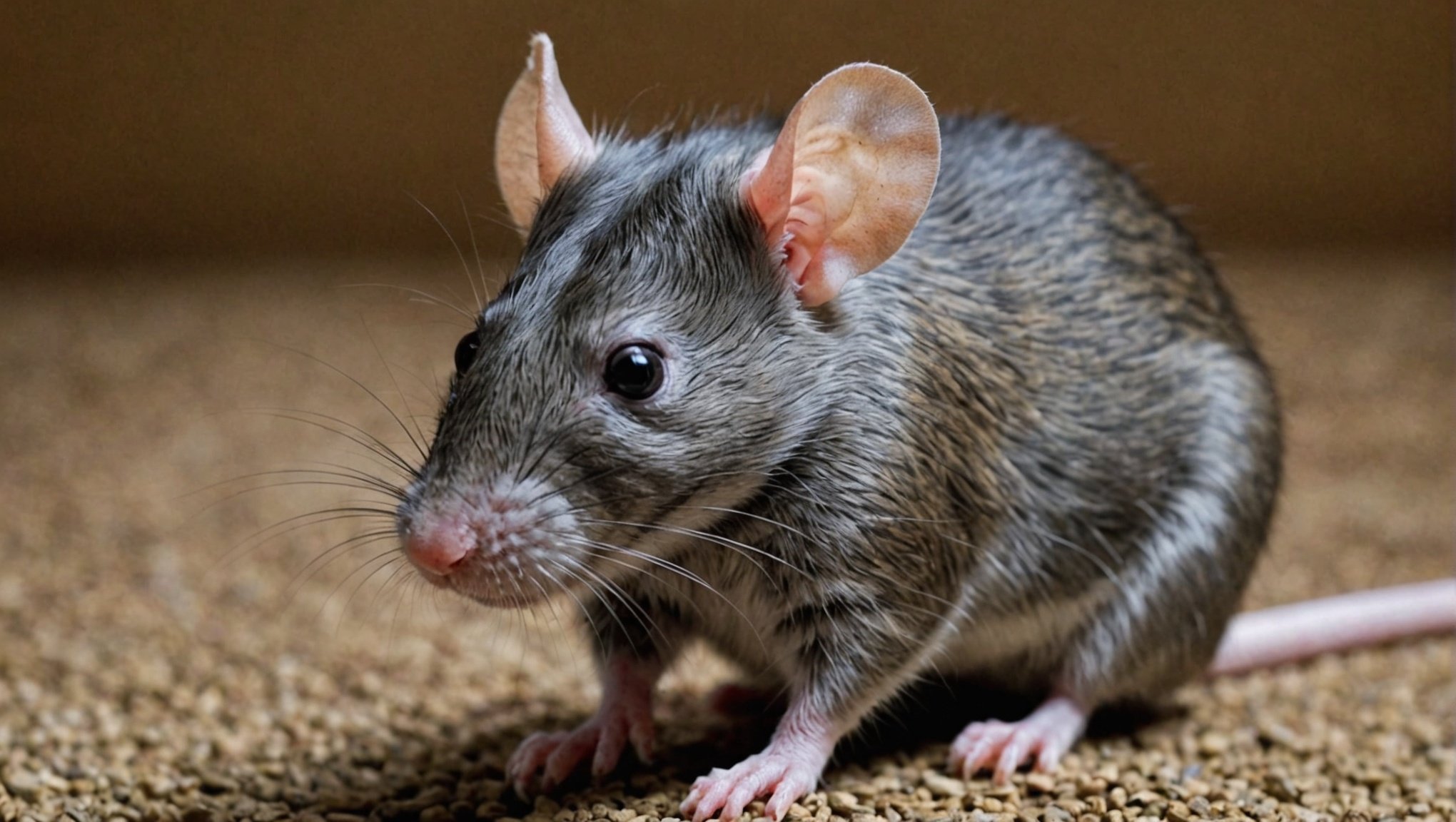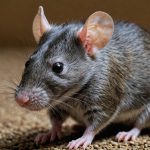Understanding Respiratory Problems in Pet Rats
Respiratory issues in rats are critical concerns that every pet rat owner should recognise and address promptly. The common respiratory diseases in pet rats include Mycoplasma pulmonis infections, bronchitis, and pneumonia. These conditions can result from various factors, such as stress, poor environmental conditions, or viral and bacterial pathogens.
Identifying the signs early is vital. Common symptoms indicating respiratory distress include:
Have you seen this : Ultimate Guide to Caring for Your Pet Turtle in a Home Environment: Tips for Optimal Well-Being
- Sneezing and nasal discharge
- Laboured or noisy breathing
- Weight loss and lethargy
One way to enhance pet rat health is by regularly monitoring these symptoms. When caught early, treatment can significantly improve the prospects for recovery. Elderly or very young rats tend to be more vulnerable, requiring extra scrutiny from their caregivers.
Early detection is crucial not only for the health of individual rats but also for preventing the spread of diseases within a colony. If symptoms persist, a veterinary consultation is recommended. A timely intervention can lead to better management and recovery outcomes, improving overall pet rat health. Attention to habitat hygiene and stress reduction methods also plays a vital role in maintaining a healthy environment for your furry companions. Regular check-ups and immediate response to symptoms pave the way for a healthier, happier rodent.
Have you seen this : Identifying the Initial Symptoms of Diabetes in Your Beloved Cat: A Complete Guide
Diagnosis and Veterinary Consultation
Understanding when to seek veterinary care for your pet rat’s health management is crucial for their well-being. If your rat exhibits signs of respiratory issues like persistent coughing, sneezing, or abnormal breathing sounds, it’s time to consult a professional. These symptoms could indicate underlying conditions that require immediate attention.
A veterinary examination is essential for accurately diagnosing your pet’s health issues. During the visit, the vet will conduct a thorough physical exam, paying close attention to your rat’s respiratory system. This evaluation helps identify any abnormalities or distress in breathing patterns and overall health status.
To pinpoint the cause of respiratory problems, the vet may recommend diagnostic tests. Such tests can include blood work, X-rays, or swabs to detect bacteria or viruses. These tools are invaluable in forming an accurate diagnosis, ensuring your pet receives the most effective treatment plans.
The importance of a professional diagnosis cannot be overstated. Without precise identification of the issue, treatment can be ineffective or even harmful. Maintaining regular veterinary consultations and following through with recommended diagnostic tests ensures that your pet rat receives appropriate care, ultimately leading to better health outcomes and longevity.
Treatment Options for Respiratory Problems
When dealing with respiratory problems in rats, selecting the appropriate respiratory treatments is crucial. Understanding the types of medication for rats available will empower you to make informed decisions.
Several common medications are used for treating respiratory issues in rats. Antibiotics such as enrofloxacin and doxycycline are frequently prescribed due to their effectiveness against bacterial infections. Sometimes, veterinarians may suggest bronchodilators or nebulization treatments to alleviate symptoms.
Home care treatments also play a pivotal role alongside medication. These treatments include maintaining a clean and dust-free environment. Utilizing a humidifier can aid in keeping the rat’s airways moist and clear, reducing stress on their respiratory system. However, it’s essential to note that home care should complement, not replace, prescribed medication for rats.
Regular check-ins with your veterinarian are critical during treatment. Consultations ensure that health interventions are appropriately tailored to the individual needs of each rat. This follow-up also allows the vet to adjust dosages or explore alternative treatments based on the rat’s response to ongoing therapy.
By understanding these options, you can better care for your pet and address respiratory problems effectively.
Dietary Recommendations for Respiratory Health
Providing the right rat diet is crucial for maintaining respiratory health in pet rats. When focusing on nutrition for healthy rats, particular foods stand out for their benefits. Fresh fruits like blueberries and apples are rich in antioxidants, which can help support respiratory function. Vegetables such as broccoli and kale are excellent because they are packed with vitamins A and C, which are essential for maintaining healthy lung tissue.
Further, certain foods should be avoided, especially if the rat is experiencing respiratory issues. Dairy products, high-sugar items, and processed foods can contribute to mucus build-up, exacerbating respiratory problems. Dusty or pelleted foods, with their potential to irritate respiratory passages, should also be avoided.
Supplements can also play a role in feeding for respiratory issues. Vitamin C can be included in the diet through supplements or vitamin-enriched foods. Additionally, omega-3 fatty acids found in fish oil can help reduce inflammation in the airways, improving breathing function. While these supplements can aid in respiratory health, it is important to consult a vet before introducing them to ensure they do not interfere negatively with the rat’s overall nutrition plan.
By carefully considering feeding choices and avoiding harmful foods, pet owners can support their rat’s respiratory health efficiently.
Environmental Factors Affecting Respiratory Health
In creating optimal conditions for pet rat care, attention must be given to the living environment. One of the key elements is maintaining excellent air quality. A well-ventilated space is crucial, as poor ventilation can lead to the build-up of ammonia from urine, which can irritate a rat’s sensitive respiratory system.
Rat habitat considerations extend to choosing the right bedding. The type of bedding greatly impacts respiratory health. Avoid cedar and pine shavings, which release harmful aromatic hydrocarbons. Instead, opt for paper-based or aspen bedding, as these are safer alternatives that do not adversely affect air quality.
Moreover, temperature and humidity levels play a significant role. Rats thrive in environments with temperatures between 18°C and 26°C (65°F and 79°F) and require a humidity level of about 40-70%. Extreme temperatures or fluctuating humidity can cause stress and exacerbate respiratory issues.
These environmental factors are integral to enhancing the well-being of your pet rats. By ensuring a clean habitat, choosing suitable bedding, and maintaining ideal temperature and humidity, owners can significantly minimise respiratory risks, ultimately leading to healthier pet rat care.
Preventive Care and Best Practices
Preventive health care plays a crucial role in maintaining the well-being of pet rats, whose needs often go unnoticed. Regular routine check-ups are essential, as they help detect any underlying health issues early on. These visits allow veterinarians to monitor weight, listen to respiratory sounds, and check for any abnormal lumps or bumps. Early detection ensures your rat gets timely treatment, significantly improving their quality of life.
One of the most common issues in pet rats is respiratory problems. To prevent such issues, it’s important to keep their cage clean and dry, avoiding bedding that might be dusty or contain harmful chemicals, such as cedar or pine. Proper ventilation is also key. Make sure their living quarters are well-aired to avoid the build-up of allergens or bacteria. Humidity control can also play a role in maintaining a healthy environment.
Creating a supportive environment is vital for the long-term care of your rat. This includes a balanced diet, exercise, and mental stimulation. Plenty of toys and opportunities to play can prevent boredom, which can lead to stress and health complications. A thoughtful approach to their environment will help ensure their overall well-being and longevity, giving them the happy life they deserve.
Personal Anecdotes and Case Studies
Managing respiratory issues in pet rats can be a challenging experience, as indicated by numerous pet owner experiences. These stories shed light on practical ways to address and overcome health challenges in small animals. One notable case involves a pet owner who noticed their rat exhibiting difficulty in breathing and an audible wheeze. This prompted a swift trip to the veterinarian, where the rat was diagnosed promptly.
Real-Life Examples
Owners like this one have shared how early intervention led to successful treatment experiences. A course of antibiotics was administered, which is often the first line of defense in treating respiratory infections in rats. This case serves as a lesson on the importance of observing your rat’s behavior and acting quickly.
Lessons Learned
These stories also emphasize crafting a supportive network. Community support can be invaluable. Pet owners have shared tips and strategies through forums and social media, providing a wealth of resources. Access to case studies and shared experiences can guide decisions, helping alleviate the feelings of being overwhelmed.
Community Support
By leveraging these resources, pet owners can make informed choices, improving the quality of life for their animals. Relatable stories and case studies foster a supportive environment, where both new and experienced pet owners can learn from one another.













